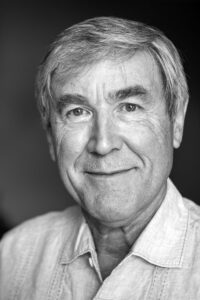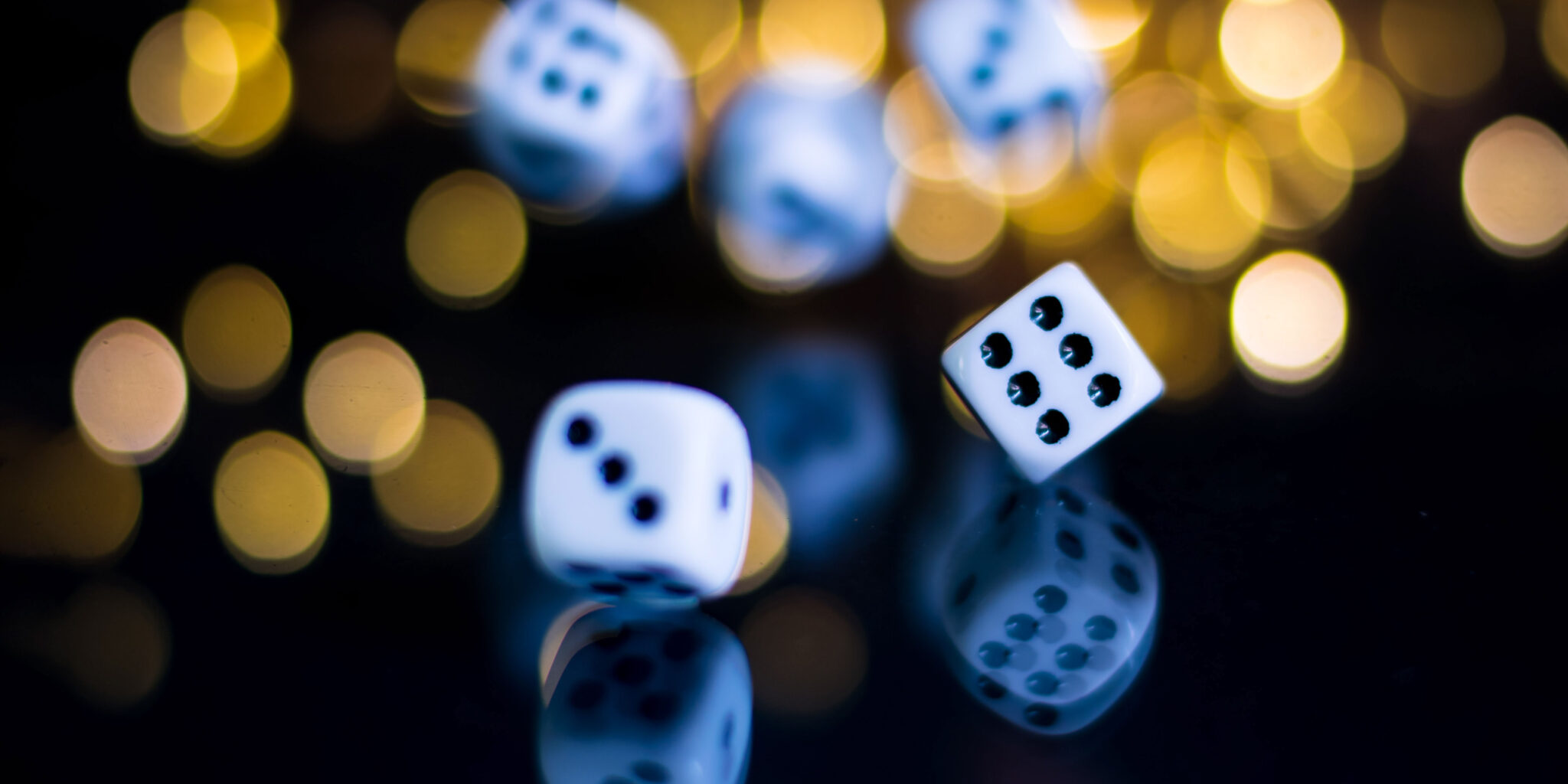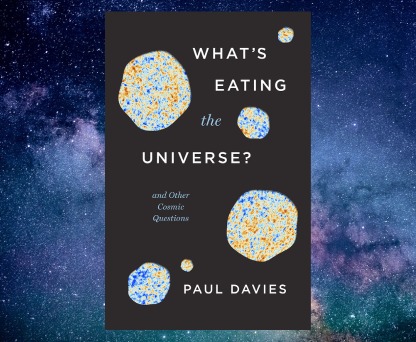Albert Einstein didn’t believe in cosmic randomness. For him, the works of nature are intrinsically and beautifully orderly and rational. Einstein believed in “perfect laws in the world of things existing as real objects” and not “in God playing dice.” He affirmed that what appeared to be randomness was in reality human ignorance of hidden variables. Founding fathers of quantum physics Niels Bohr and Werner Heisenberg disagreed. For them, randomness is real and unpredictability is fundamental to the physical foundations of the cosmos. Thus, Bohr advised:
“Einstein, don’t tell God what to do.”
Why Is Randomness a Problem for Purpose?
What is the problem with randomness anyway? The difficulty is that randomness appears to be meaningless due to the perceived lack of an overarching plan. Such apparent futility gives rise to cosmic pessimism. Physicist Stephen Weinberg’s conclusion that “the universe is pointless” follows from his observation that there is no recognizable all-embracing pattern or goal to the universe which he, as a physicist, could discern. Weinberg had “hoped that by studying nature we will find the sign of a grand plan, in which human beings play a particularly distinguished starring role.” But sadly, he reflects, “that has not happened.” Instead of seeing a plan that had humans at the center when the foundations of the cosmos were laid, Weinberg laments that “human beings appear as a chance phenomenon, not the goal toward which the universe is directed.”

Paul Davies, Physicist and Templeton Prize laureate
On the other hand, if there does appear to be a plan, then our intuition tells us that there must be a point, and thus a purpose. Physicist and Templeton Prize laureate Paul Davies, surveying the same universe as Weinberg, arrives at quite the opposite conclusion. Davies observes how the cosmos “possesses a unity and harmony that manifests insistently a strong sense of purpose.” For him “the laws which enable the universe to come into being spontaneously seem themselves to be the product of exceedingly ingenious design.” Consequently, declares Davies, “the universe must have a purpose, and the evidence of modern physics suggests strongly to me that the purpose includes us.”
Perhaps, though, randomness and purpose need not be at odds. As philosopher of science Jeff Koperski reflects, “If randomness can be employed in a purposeful way, then the two are not mutually exclusive.” For instance, our immune systems naturally harness randomness to increase the range of our defenses against countless viruses, bacteria, and other pathogens.
Randomness can also be deployed to provide better encryption for internet security. While computers may appear to generate random numbers, the algorithms used to create sequences of seemingly random numbers start from “seed” values, which are susceptible to hacking. To counter this vulnerability, web security companies such as Cloudflare employ the unpredictable patterns generated by lava lamps to help keep the internet more secure.
Randomness thus does not negate purpose. Indeed, randomness can be part of the plan. To this end physicist George Ellis, winner of the 2004 Templeton Prize, ascribes purpose to randomness itself. For Ellis, randomness is “part of the design of the universe. It is a key feature in allowing autonomous higher levels of order to come into being.” Randomness is “a virtue, not a vice; it allows purpose to be an active agent by selecting desired outcomes from a range of possibilities.”
Is Nature Really That Random?
How much randomness is there in the world of nature? The history of science has been characterized by the ever-expanding discovery of patterns underlying phenomena that initially seemed random. The scientific search for laws of nature began as a quest to find and describe such patterns, and this quest continues today. Scientists are always finding new patterns, and what has been declared random by one generation of scientists is often found to be well-ordered by the next. For instance, says Nobel laureate George Smoot, the Big Bang, which was once thought to be “the most cataclysmic event we can imagine, on closer inspection appears finely orchestrated.” While the future states of complex dynamical systems such as the human brain and the stock market remain in principle unpredictable, researchers have discovered that their behavior still follows laws. Even chaotic processes — such as the weather — are governed by laws and we now know that “there is order in chaos.”
What about the role of randomness in the emergence and evolution of life? It is well known that Charles Darwin maintained that chance plays a major role in the generation of evolutionary variation. Yet, at the same time he questioned whether such “chance” is just a placeholder for human ignorance of the true causes of variation. “Chance, of course,” explained Darwin, “is a wholly incorrect expression, but it serves to acknowledge plainly our ignorance of the cause of each particular variation.” Darwin trusted that one day such “chance” would be replaced by laws. Today, evolutionary biologist Simon Conway Morris believes we are much closer to discovering such laws. “Evolution is far from random,” explains Conway Morris. “Far from its myriad of products being fortuitous and accidental,” he says, “evolution is remarkably predictable.”
The investigations of astrobiologist Stephen Freeland have suggested that “the standard genetic code, by which most organisms translate genetic material into protein metabolism, is non-randomly organized” and that this non-randomness is an adaptation “that buffers genomes against the impact of mutations.” According to Freeland, “The genetic code plays a fundamental role in steering the pathways of molecular evolution” and these pathways are much less random than we once believed.
Other researchers have similarly discovered that evolutionary mutations are not as random as we once thought. A recent study in Nature led by Grey Monroe explains that, even though “the random occurrence of mutations with respect to their consequences is an axiom upon which much of biology and evolutionary theory rests…emerging discoveries in genome biology inspire a reconsideration of classical views.” According to Monroe, “It turns out that mutation is very non-random.”
Is Belief in Randomness an Act of Faith?
To see purpose in seemingly random occurrences is thought to be an act of faith. Such faith in purpose, however, has borne much fruit in the realm of science. The first scientists believed there were patterns out there to be found and they worked tirelessly to find them. These early scientists “relied upon God to establish the intelligibility and regularity of nature,” and seeking after the mind of God they created “a new form of explanation in terms of divinely imposed laws of nature.” Einstein and many others intuitively believed in purposeful patterns underlying the cosmos, searched for them, and were quite successful in finding them.
Belief in randomness is similarly an act of faith. As mathematician James Bradley explains, “Randomness is a scientific concept that cannot be completely investigated by science….The existence of randomness cannot be settled scientifically.”
Whether randomness is really baked into the universe or just a placeholder for human ignorance, it is clear that randomness is not synonymous with a world without meaning or purpose. For those who deeply believe in perfect laws or a divine plan, such as Einstein and Kurt Gödel, the quantum randomness of Bohr and Heisenberg strains the credibility of belief. Knowing full well the ultimate incompleteness of propositions and the role of faith in both math and science, Gödel, when asked about Heisenbergian uncertainty by physicist John Wheeler, simply changed the subject. Einstein eventually amended his own view of quantum physics to affirm that: “God tirelessly plays dice under laws which he has himself prescribed.”
In other words, God is the only one who can truly know the rules by which God plays quantum dice with the universe — and even if we have not yet discovered them, there are rules nonetheless. As Bradley reminds us, “dice are carefully designed and purposeful, are far from being unsystematic, and their outcome has a clear (arguably nondeterministic) cause.” Or as Proverbs 16:33 tells us “The lot is cast into the lap, but it’s every decision is from the LORD.”


